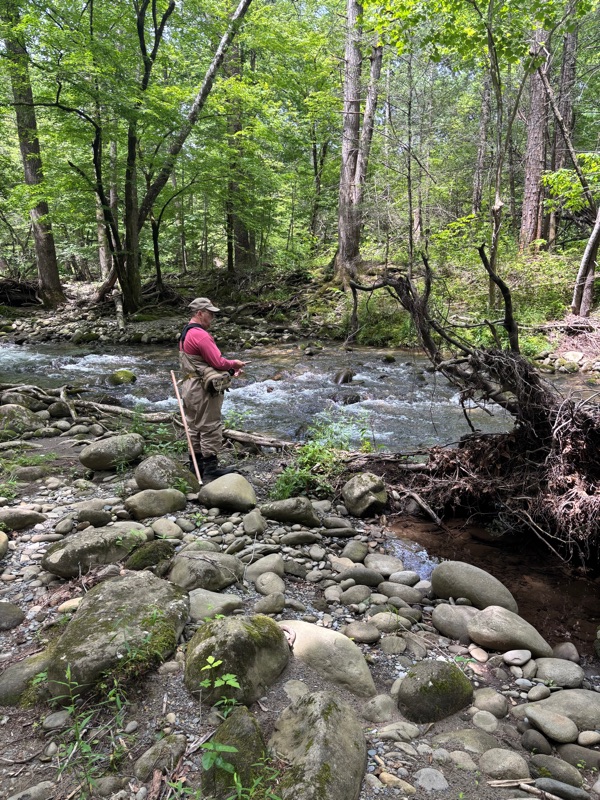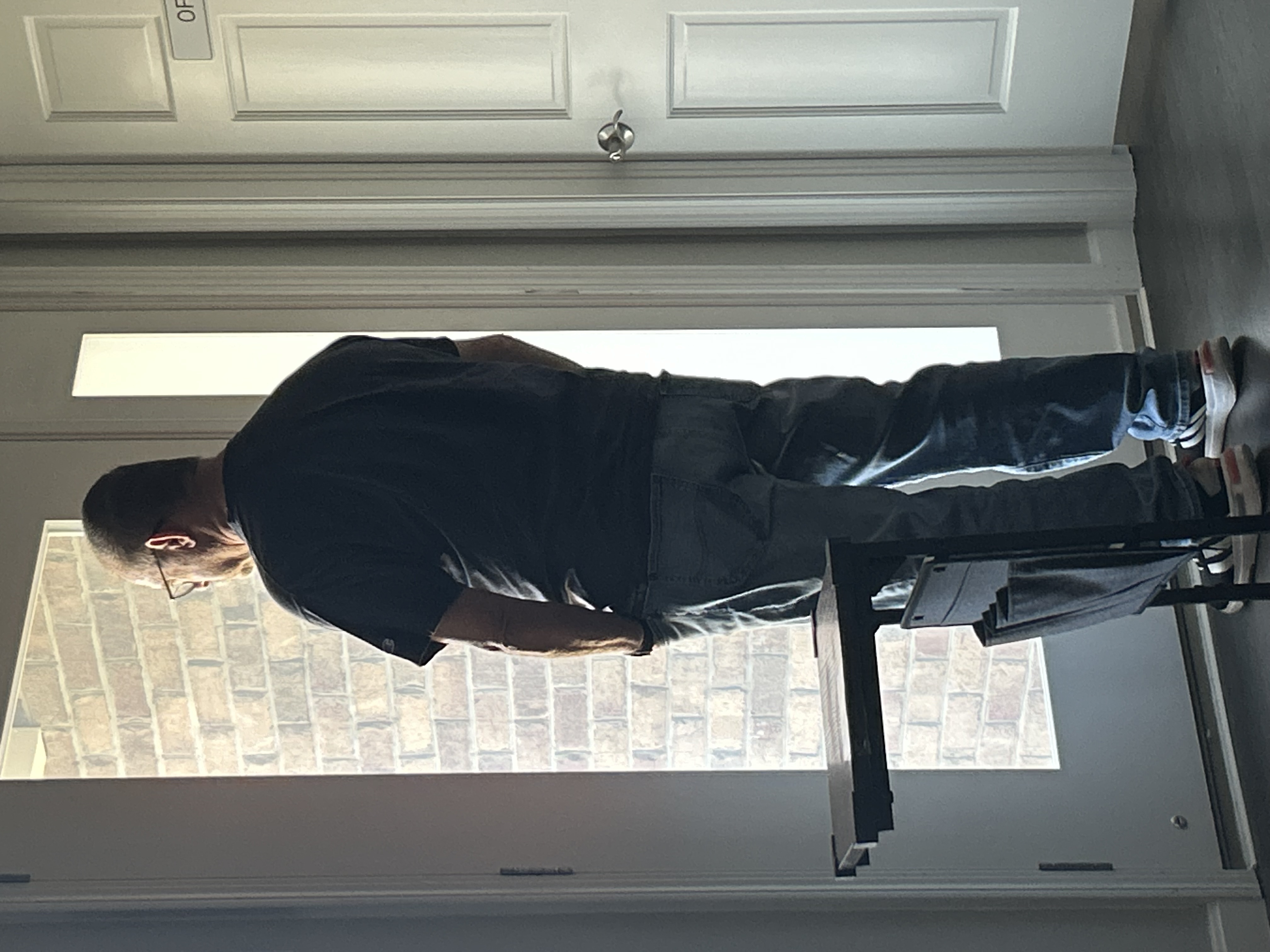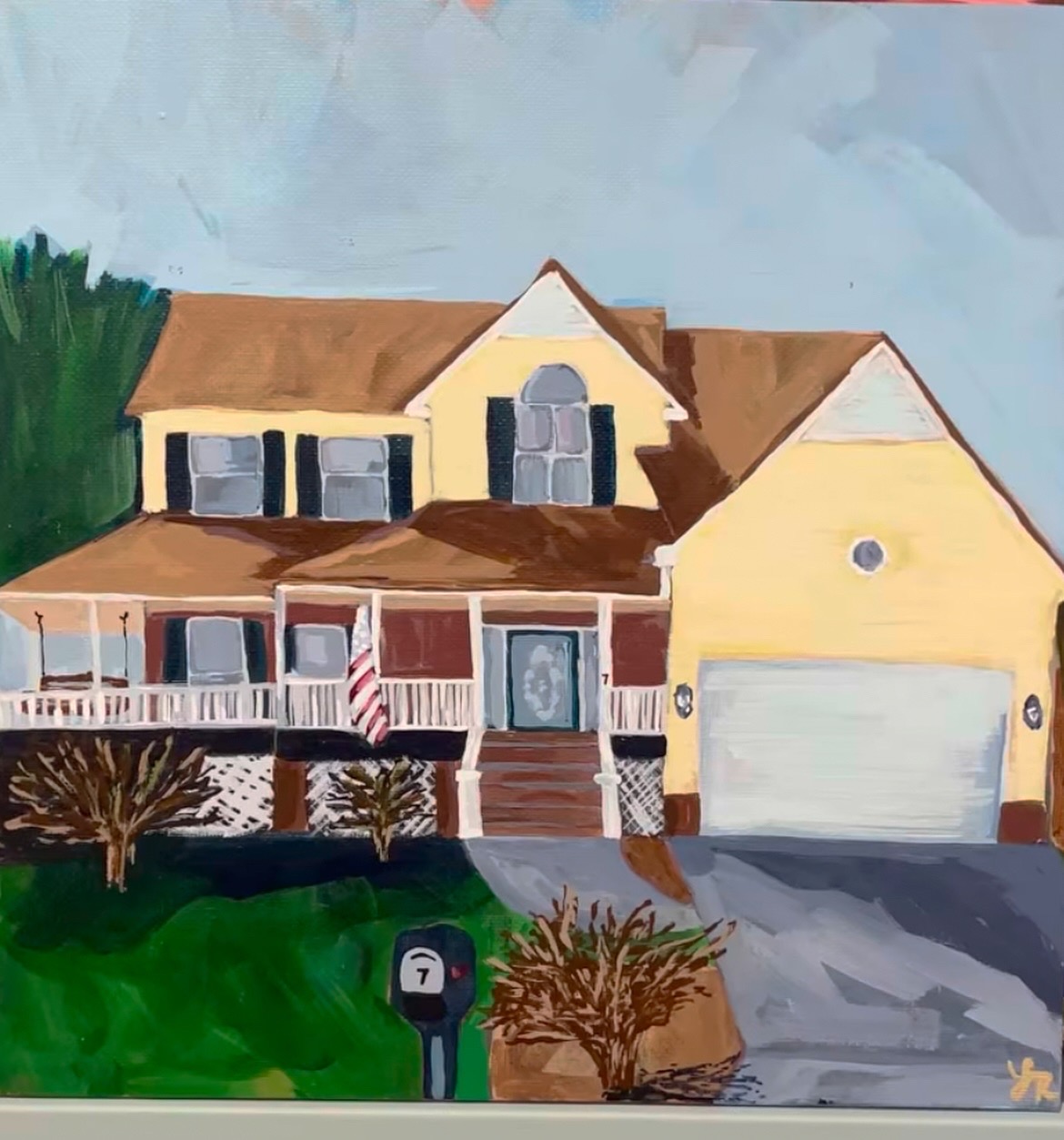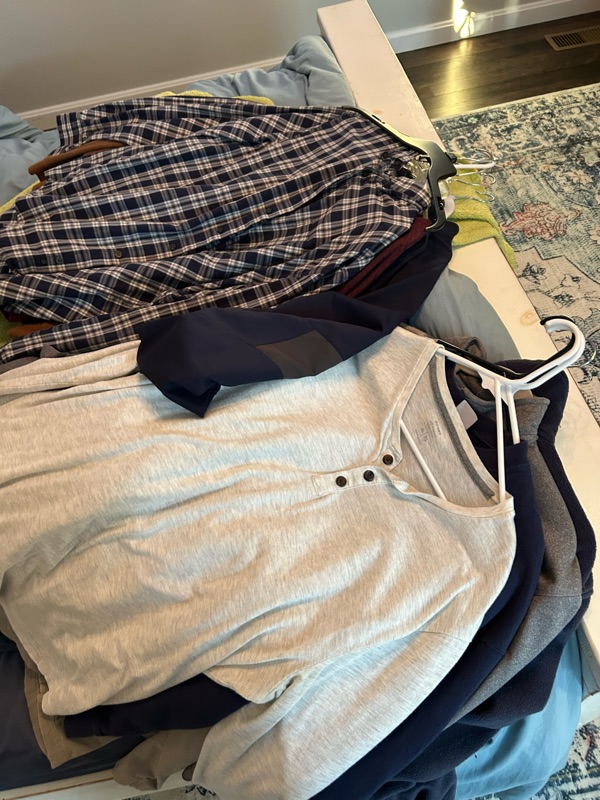
📷 credit: our son-in-law, Ryan Rexroad.
💡for more information on FTD & to find support, visit www.theaftd.org
When people see Chuck, they often say, “He looks fine” or “He seems okay.” And in many ways, on the surface, he does. He smiles. He chats. He recalls a memory or cracks a joke that feels like the “old Chuck.” But what most don’t see is the constant tug-of-war happening just beneath the surface—the confusion, the delusions, the shifts in his reality, and the moments when everything feels scrambled. This is life with Frontotemporal Dementia (FTD), and it doesn’t follow a neat, predictable path.
FTD is an unseen disability. Unlike more familiar physical illnesses or even some types of dementia, its symptoms aren’t always visible. Chuck can appear alert and capable, but under the surface be completely lost or delusional. One day, he’s physically strong enough to take a walk. The next, he might struggle to stand or shuffle even a few feet. Some days he’s losing his balance and falling, only to have strength return. It’s not linear, and that unpredictability is one of the hardest parts—not just for Chuck, but for those of us who love and care for him.
What can make it harder are the well-meaning comments. “But he seems fine.” “He looks so good.” “He must be doing great, he went fishing!” These words, though usually intended to comfort, often feel invalidating. They erase the private struggles—the emotional confusion, the exhaustion, the fear, the disconnection. The work it takes on the part of family to get him to activities, to the river! All things we do to support him and love him. FTD is not a condition with consistent, visible decline. It’s unpredictable. It comes in waves. It’s a thief that sometimes hides in plain sight.
There are moments when Chuck is incredibly “on point”. He’ll ask insightful questions, give brilliant answers and recall long ago events. And then there are moments—sometimes just minutes later—when he’s convinced about something that’s not true, or that someone is doing something they’re not. These fluctuations aren’t imagined. They’re real, and they’re part of the cruel landscape of FTD.
As his wife and care partner, I live in this in-between space. I grieve the parts of Chuck that are slipping away while holding on fiercely to what remains. I smile when someone says, “At least he’s doing okay,” but inside, I wish more people understood that “okay” is relative. “Okay” might mean he didn’t fall today. Or he didn’t pack up a few belongings saying he’s “going home” to the house we sold. Or he was able to make it to the bathroom in time. These small wins matter in a disease that’s devastating.
FTD is a daily negotiation—with time, with energy, with expectations. It doesn’t fit into tidy narratives of decline. It’s messy. It’s unpredictable. And it’s invisible to those who aren’t looking closely. He looks okay.
So if you see us out and Chuck “seems fine,” know that you’re witnessing a moment—not the whole story. Know that behind that moment might be hours of confusion or fatigue, struggles to get him to the shower and to dress, trying to redirect him from thoughts of leaving or delusions. Reminding him, guiding him and reassuring him daily, sometimes hourly, And know that sometimes, the most supportive thing you can do is simply acknowledge what you don’t see or can’t understand.
Because while Chuck may look okay, he—and we—are living with a reality that is anything but.
We don’t want pity. Don’t feel sad or sorry. That’s not what this is about. If you can, offer grace and understanding, with a smile. While FTD brings plenty of heartbreak and hard days, we try to meet its challenges with humor whenever we can. Laughter has become one of our greatest coping tools—because sometimes, in the middle of confusion or chaos, a shared joke or a ridiculous moment reminds us that joy still lives here, too. It helps us stay grounded, connected, and human in a journey that often feels anything but.
FOOTNOOT from Ryan:This picture was the start of the journey, there were no fish in this hole but I knew there should be a fish across this stream and in the main river about 100 yards away. So I asked him if he wants to go over there and he agreed. We walked down to a shallow spot to cross and he didn’t approve so he went to a swift, deep spot and I stood downstream to keep him from getting swept away. We end up at the fishing hole and one thing about Chuck is he likes to help people catch fish so he won’t go to the good hole where I’m certain there is a fish.
I sit there for a bit and I finally decide if he’s not gonna come up and catch the fish I will. I cast and no sooner than the bait hit the water a fish is on. I really wanted him to catch it so I did the only thing I thought would make sense and acted like I hurt my ankle and yelled for him to come help me! He slowly made it up the river bank and I was sitting on the ground holding my “injured ankle” and he said “do you need help?” And I said “yes take the rod and catch the fish!” Which he did and my ankle had miraculously healed in order to net it for him. That was a gift from god because that fish stayed hooked for at least 10 minutes and should have gotten off the hook multiple times.
Shortly after he caught it and released it I asked him if he wanted to go back and get some lunch and he said “yep.” As we started back to the golf cart he asks me “Did you even get a bite? Because I didn’t get anything.” To which I responded “nope not a thing.”
So we started back across the stream we had crossed earlier and again he chose the path of most resistance while I carried both our rods. It took a while and he was struggling to get his feet under him but he finally made it to the other side. After we rested for a few minutes we walked to the golf cart and when he saw it he nearly sprinted toward it just to sit down and we headed back to the cabin for lunch. •
To learn more about FTD, find support and education, head to the aftd.org for information
•Follow me on Instagram @debbieelkins
 One of the hardest parts of life with frontotemporal dementia (FTD) isn’t always the big changes — it’s the quiet, everyday moments that remind you how much this disease shifts reality for both of you.
One of the hardest parts of life with frontotemporal dementia (FTD) isn’t always the big changes — it’s the quiet, everyday moments that remind you how much this disease shifts reality for both of you.


